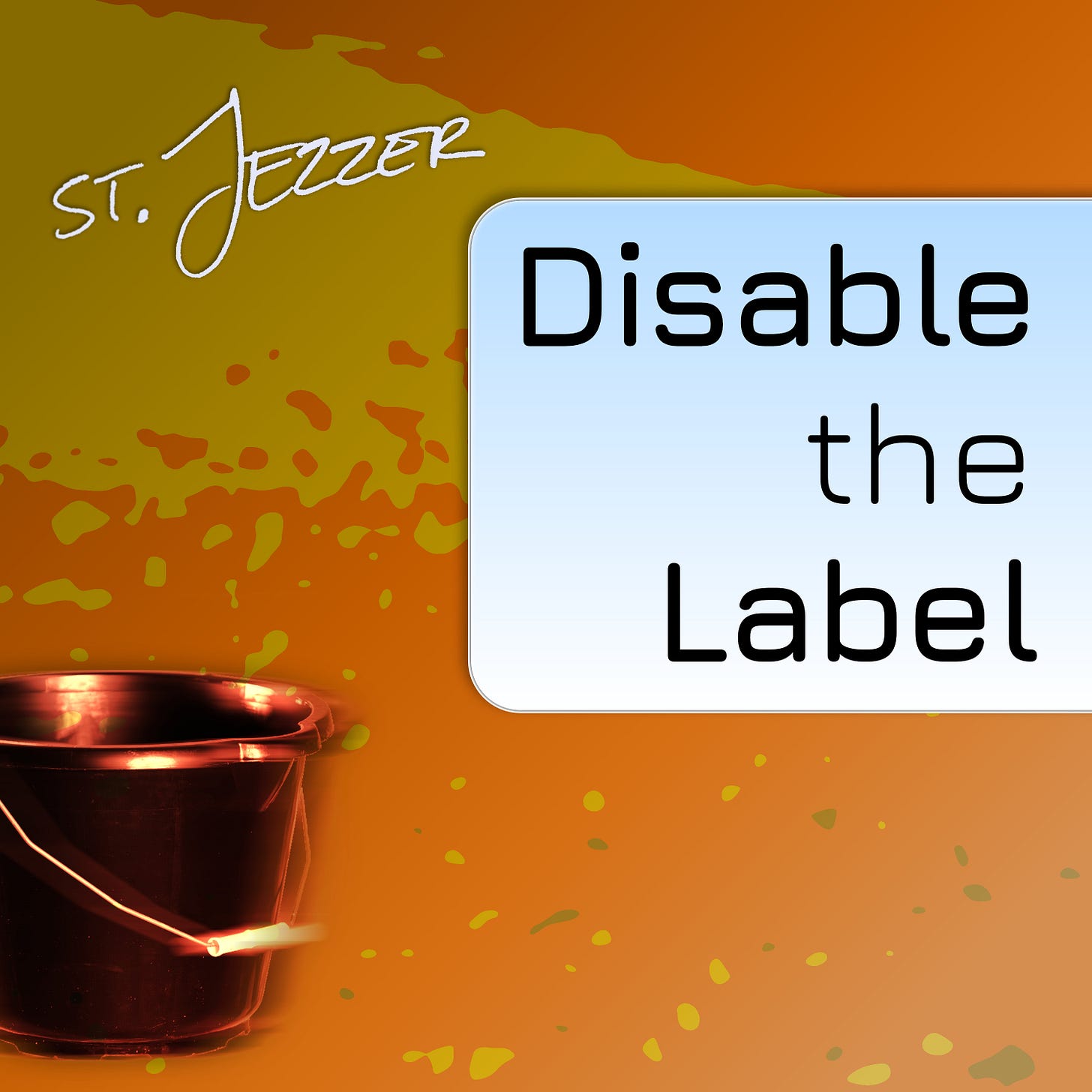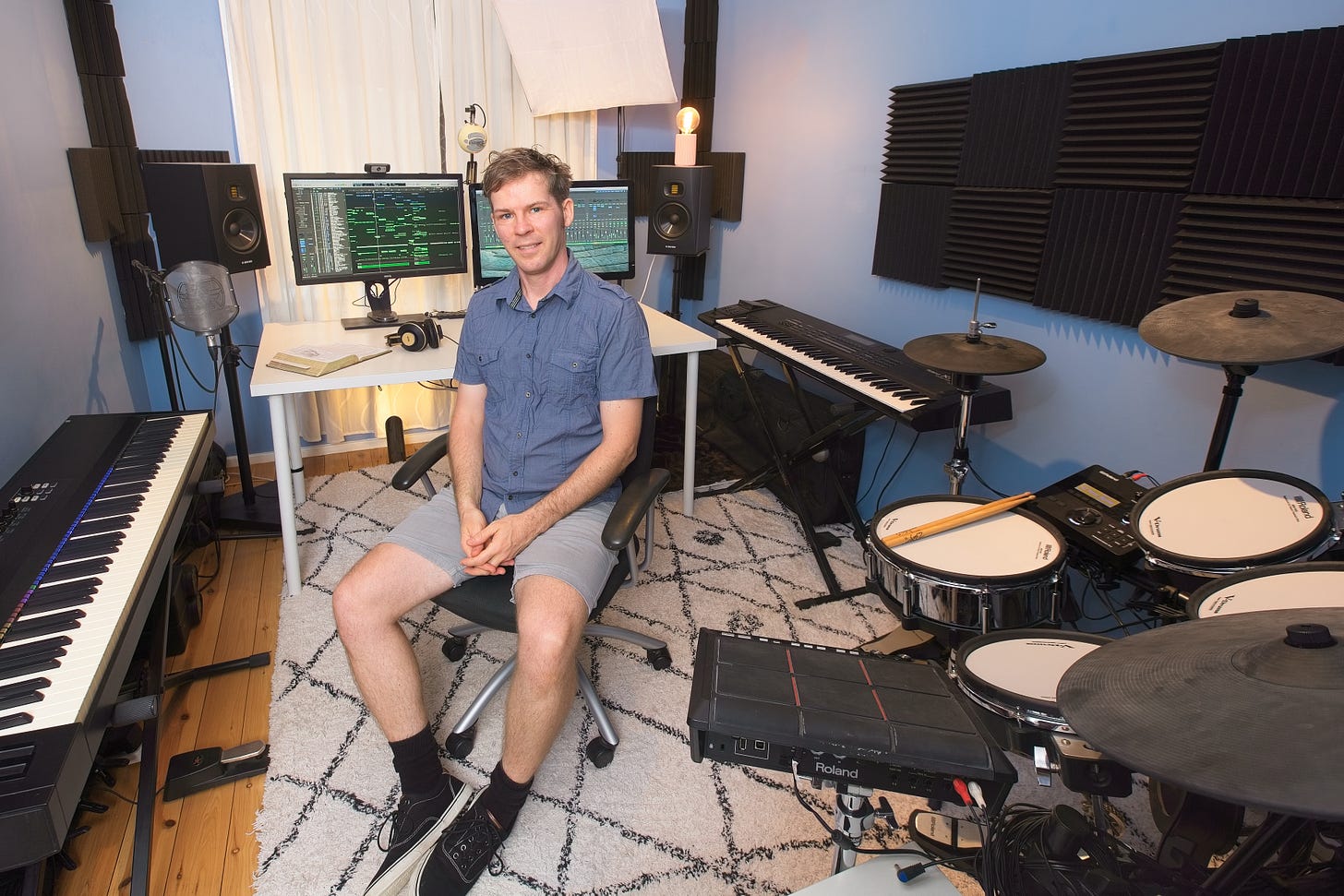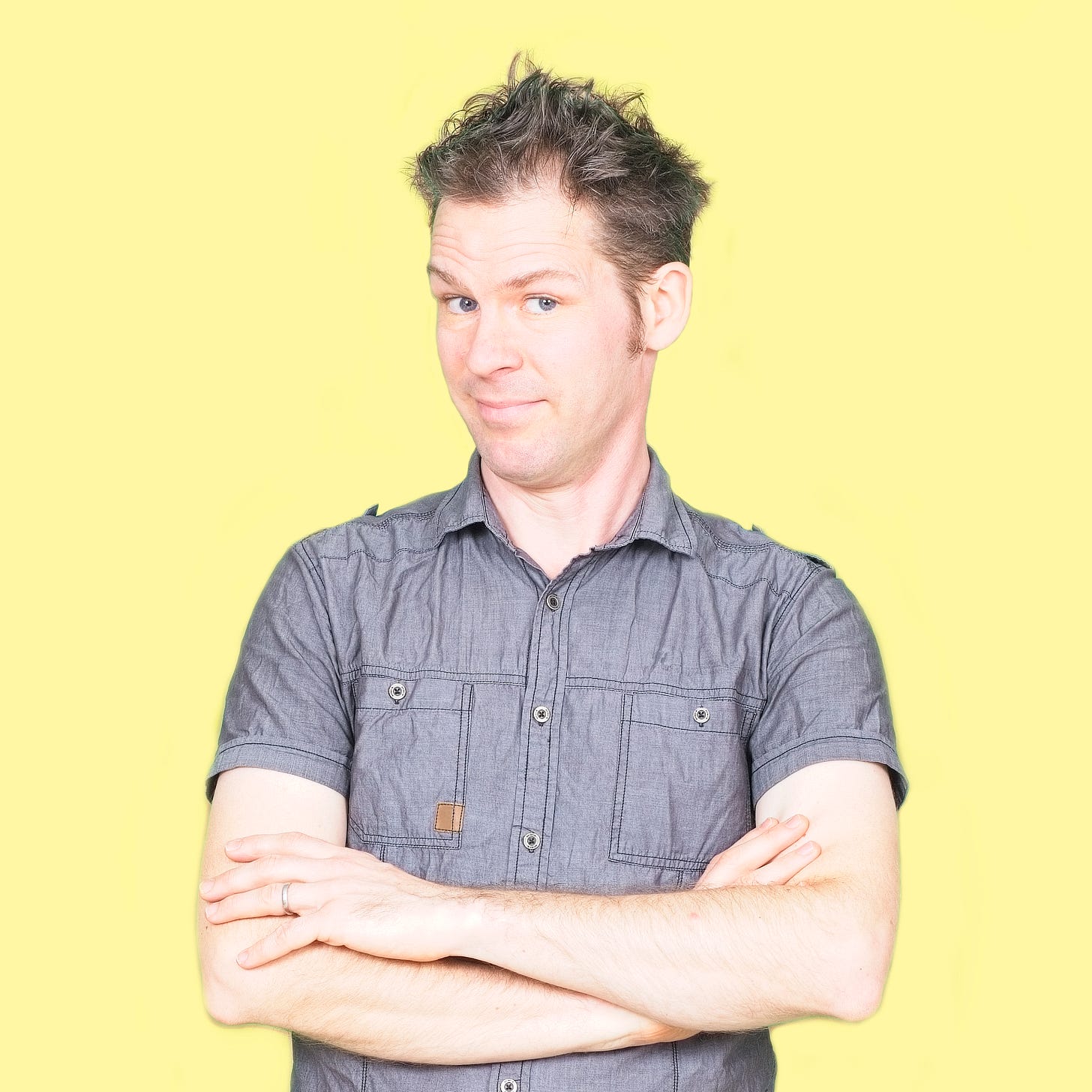The Power of Story When We Disable the Label
One songwriter's unique perspective on the woman at the well and the labels placed upon us
“Enter Job…”
Those are the exact words that first drew me to jazz funk Christian songwriter, St. Jezzer. As someone who has personally read, studied, wrestled with, and lived my own version of the book of Job, I was beyond intrigued when I read the opening line of his post. I had no idea at the time that St. Jezzer was a musician, I just knew he truly understood what it meant to face unimaginable hardships without letting go of that war-worn thread of hope.
There truly are some things that can only be understood through shared experience, and suffering is one of them. St. Jezzer’s insight into this often-avoided book of the Bible demonstrated his shared empathy. He got it - really got it. He had lived through the grief, yet was still able to discover goodness. He saw how God uses all things for our good, and though entirely undesirable, our greatest blessings can sometimes be disguised in desperation.
I was so grateful to encounter a fellow “Job” that I messaged St. Jezzer directly, and we began chatting about our shared experiences. We will be publishing a collaborative piece about the book of Job later this year, but decided to share a different message today about another often ostracized biblical character - the woman at the well. We all know how damaging societal labels can be. Yet, our loving Lord comes to free us from such captors. If you are someone who has struggled to “fit in” or feel valued, I hope you discover healing and hope from his message today.
THE POWER OF STORY WHEN WE DISABLE THE LABEL - ST. JEZZER
I began jotting down ideas for Disable the Label, just as my single Dad Life released on September 1, 2024, which was Father’s Day in Australia and New Zealand. I was thinking about how the woman at the well was really just a victim of society’s labels. I suspected that when Jesus met her, He didn’t see a bunch of labels: He simply saw her for who she was. It didn’t matter to Jesus what she had done or the mistakes she had made. Yet in today’s modern society, I have witnessed many (including myself) being labelled and placed into an ever-increasing number of convenient social buckets. Somehow, these categories have given people permission to believe they know someone simply based on what container they had been placed in by society. Most of the time, those buckets are actually inaccurate reflections of who a person really is.
Two weeks after Dad Life was released, I was driving to work in our car. I was waiting at a T-intersection, and moved into the junction as my light went green. Halfway through the turn, a bus ran a red light, smashing into our car head-on at 60km/h (almost 40mph), destroying it. I received six broken ribs, a sprained shoulder, glass embedded in my face, other facial lacerations, a concussion, and what turned out to be a minor brain injury.1
I was taken to the hospital by ambulance. Six hours later, I was discharged. Lost in an unfamiliar and bewildering maze of hospital corridors, I asked a nurse how to find my way out. She looked at my swollen and scarred face and asked what had happened. I said my car had been hit by a bus.
“Oh, those bus drivers, they’re so dangerous, aren’t they?” she replied, half rolling her eyes.
My concussed brain didn’t really have the capacity to provide much of an answer at that moment, but I remember thinking, once again, the staff of an entire industry had been labelled “dangerous drivers” thanks to the actions of a few. While the bus driver who hit our car had been driving dangerously, I’m sure many bus drivers make it through their careers without hitting or hurting anyone.
As I started to adjust to life in recovery, I found that my brain wasn’t quite working as it used to. It was becoming more and more clear that this head injury had brought with it some long-term effects. To my relief, I found my creative brain was still intact, so I gently started to pen some lyrics for what was to become Disable the Label. Two weeks after the accident, I hauled myself into my home studio to see if my mental function would stretch to operating my music production software. I was really thrilled to find that I hadn’t lost any musical abilities at all. However, it was very tiring. I only lasted ten minutes, enough to write the two bars that make up the chorus riff, before having to stop and rest again.
For a while, I had this scary thought lingering: was my head injury ultimately going to label me as someone with a mental condition? How would this affect life in the long term? I feared I might end up with a big placard hung around my neck, stating “head injury,” along with all the pre-packaged judgments that came with it.
I needed my wife to do so much more of the thinking, organising, and planning. She also had to do all of the driving and shopping, because I wasn’t allowed to drive. On top of homeschooling our kids, we had to negotiate five medical appointments a week. As a result of these new limitations, I found myself adopting my own labels: “hopeless,” “dependent,” “unable to support his family,” and I was beginning to truly empathize with the woman at the well.
Going to draw and transport heavy buckets of water in the beating heat of the midday sun clearly showed the woman at the well was deliberately avoiding being around her peers, who would have been drawing water at the start of the day, when the temperature was cool. This social avoidance was a coping mechanism - a very real struggle with the life circumstances she felt she had no power over. She couldn’t change the fact that she had five previous husbands, and there was more than likely a reason she had decided to live with her current partner without committing to marriage. This, in itself, made her a social outcast, which is why she went to great lengths to avoid social situations, such as drawing water from the well.
Apart from distancing herself from society, we don’t know much about how else the woman coped with her circumstances. I imagine she must have felt quite stuck and unsure how to break free from the labelled life she was living. I certainly can relate. I know what it feels like when you are wading through the thick, unforgiving mud of life, while everyone else is cruising past you in four-wheel drive, caking you in mud in the process. Based on the description of her lifestyle and her mercy-filled interaction with Jesus, it is clear that all of this significantly impacted her mental health, just as it had mine.
During other seasons of hardship, I had used music production as a means to improve my own mental health.2 I knew creativity, in particular, music, could soothe the struggle in my soul. As I faced this new challenge, I chose to create again. I was determined to keep my mind active while it recovered and ensure I did not lose any of its abilities. Just as my physiotherapist was working on the sprain and muscles in my injured right shoulder, I was determined to keep exercising my brain to help it recover to its pre-injury state.
Art has a way of working with your emotions. Incomplete music leaves you hanging, thirsting for completion. Music, when it is complete and ready for sharing, somehow takes on this third dimension, gathering all of our emotions together in a sort of cohesive completeness which quenches our emotional thirst. In the world of music production, it’s not just the right combination of chords, melodies, rhythms, or lyrics. It’s how the sounds work together. It’s how they complement and support each other, without getting in the way of each other.
When the woman at the well said to Jesus, “Sir, give me that water,” she had gotten to the point where she knew Jesus was the one who would quench her thirst. His message meant that all the parts of her life could now work together in harmony. It gave her the freedom to run towards those who accused her, free of the labels that had worn her down for so long, and share that thirst-quenching completeness she hadn’t known before.
My recovery is still ongoing. I still face uncertainties regarding what my career will look like once I’m able to fully return to work. Like the woman at the well, I’m figuring out who I am and what I do all over again. Every day is a little nugget of progress, and just like the lyric towards the end of the song in Disable the Label, I’m almost gushing about my future as I see improvement physically and mentally every day.
It’s an odd feeling, knowing that not everyone will be aware of this motor vehicle accident backstory, and the disproportionately hard slog that went into creating the track. But I do think it’s fitting that, just like the woman at the well had her own hard slogs as she lugged heavy water buckets through the midday heat before finally winning, the creation of this track mirrored that same struggle. I truly hope those who listen will gain liberation and freedom, realising that Jesus doesn’t care about labels like the world does. You are more than a label. You are valued and loved.
Have you felt trapped or controlled by labels put on you by others, or perhaps you have placed upon yourself? How can you, like the woman at the well, discover freedom from those constraints?
Let’s Share Stories! I hope you will continue to join me as we celebrate the power of story together. Click on the links below to subscribe or share.
St. Jezzer, is a British-born, Australian-dwelling jazz-funk Christian musician. He spent his teenage years involving himself in every aspect of music, playing in every band and orchestra he could find in school. He also threw himself at any opportunity to involve himself in music technology, recording school concerts, and creating music electronically using the emerging computer technology that was available in the early 2000s. After school, he completed university, graduating with a Bachelor of Arts in music, specialising in studio recording and composition. After graduating, he spent much of his career working in a range of media technologies - including audio and video engineering, IT, and technical project management.
From 2020 through 2023, he journeyed through what he calls his “Job season”, where he came face-to-face with several of his worst nightmares simultaneously. The book of Job, along with US theologian Frank Viola’s book “Hang On, Let Go”, became literary lifelines. While trying to work through a range of psychological traumas from his real-life worst nightmares, he crafted a track based on Frank Viola’s book, of the same title. Very quickly he found himself producing four additional tracks, which became his debut EP, “Good Grief!”, released in January 2022.
St. Jezzer credits the production of this EP with helping him through his “Job season”, despite living through a haze of psychological trauma. Since that first EP, he has gone on to release three singles and two more EPs. On Sunday 18 May, St. Jezzer’s drops his latest single, which was produced through another rather different trauma.
You can listen to Disable the Label NOW on Spotify or all major music streaming services worldwide.
LISTEN NOW - All streaming platforms








